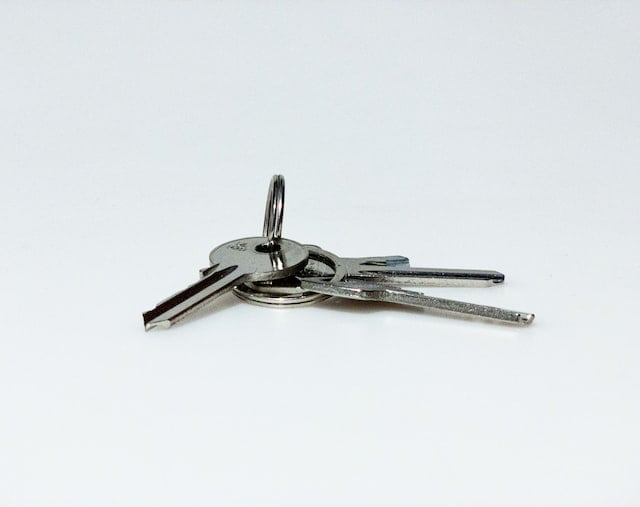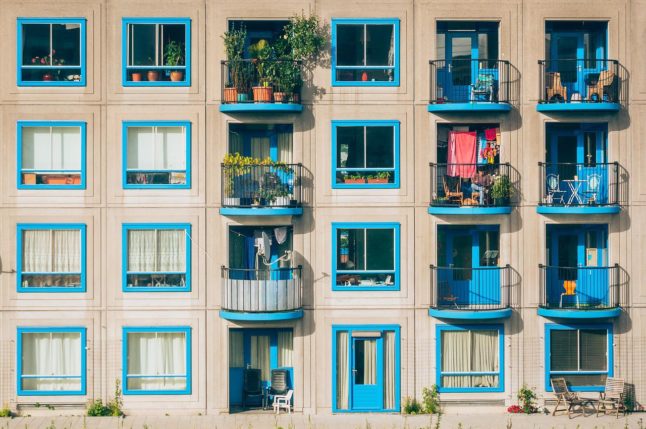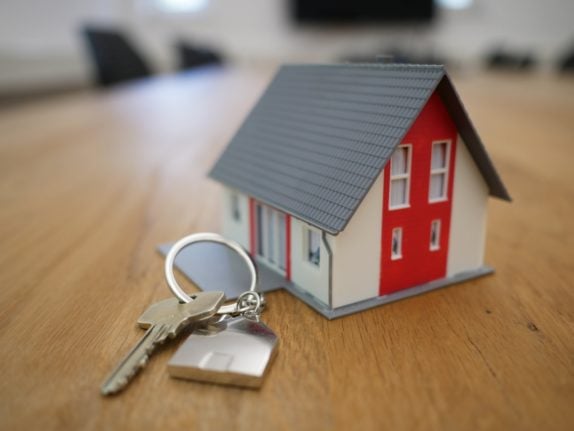While house ownership is an aspiration for many, it is always a complex decision – especially now. With so many extraordinary developments in the recent past – higher mortgages, the tight supply situation, and conflict in Europe it is even more difficult to analyse the property market and figure out the what, where, when, and how of the investment process.
The cost of a mortgage has shot up recently. The average advertised interest rate is 2.5 percent per year for a five-year fixed-rate mortgage and 2.76 percent for a 10-year fixed-rate mortgage. In a recent report, moneyland.ch CEO Benjamin Manz stated that, on average, the cost of a 10-year fixed-rate mortgage has nearly doubled from what it was at the start of 2022.
The SARON (Swiss Average Rate Overnight) rate, considered a higher-risk variable rate, has also significantly increased. SARON is the average interest rate for loans issued in Swiss Francs with a maturity of one day (overnight).
READ ALSO: Switzerland sees dip in property prices and rents
‘Not a bad time to buy property’
Buyers in Switzerland who have recently invested in properties already feel the higher interest rate effect. As a result, some are considering reworking their mortgages.
“I took a SARON mortgage with an interest rate below 1 percent. However, this has already gone far above 1 percent,” a house owner who recently bought a property in Wetzikon (canton Zurich), Switzerland and who wished to remain anonymous, told us.
“With the current uncertainties, I also do not want to risk it much. Therefore, I am talking to the banks about converting a part of the mortgage into a fixed rate.”
Does this all mean that buyers need to wait and watch before investing in a house?
Richard Auf der Maur, the president of the Property Owners Association, suggested that even within the current market, it is not the wrong time to buy a place in Switzerland.

“From a pure market timing perspective, it’s certainly not a bad time to buy property in Switzerland,” he told The Local. “The massive price increases during the pandemic cooled off considerably in the last months, and the higher mortgage rates limit the buyer pool and thus prices.”
However, he suggested that buyers really evaluate the property well before honing in on anything.
“A thorough valuation of property values is key,” he said. “A lot of sellers still have unrealistic price expectations stemming from Covid times. Also, financing is crucial: higher mortgage rates increase holding costs considerably, and comparing different offers is advisable.”
According to Auf der Maur, the good part is that the market environment is returning to healthier space with more realistic prices.
READ MORE: EXPLAINED: How to save on your mortgage in Switzerland
Another real-estate expert suggested it might be worth waiting a while before investing because the market for single-family homes is cooling off.
“There may be more room for negotiation for prospective buyers in the future. The market is on the move,” Viola Thiele of SVIT Schweiz said.
Thiele said that prospective buyers need to keep an eye out – not only on the purchase price and additional investment requirements – but also the increasing operating and finance costs.
“In recent years, these costs of living had not played an important role,” she said. “But that is now changing with rising interest rates and rising ancillary costs.”

‘Our family was growing’
For many buyers, house ownership is an emotional experience centered on family and finding a sense of belonging rather than just an investment. Therefore, in these cases and with thorough calculations and proper planning, it still makes sense to take the plunge and buy a home.
“For me, buying a home was driven mostly by family reasons,” Ashish Sharma, clinical development lead at a pharma firm, told The Local.
“Our family was growing, and we needed a bigger space. So it was clear from the beginning that we would buy a property as and when we could. But, of course, we had our finances, location, and space requirement figured out even before visiting the houses.”
Sharma bought a property in Aargau Canton in November 2022. The mortgage rate has increased since then.
“We took the SARON rate, and based on the historical calculations, it made sense to go for SARON than the fixed rate,” he said. “However, even though we can save a bit with this market change, I am not sure what would happen in the near future.”
READ MORE: Swiss mortgage rates ‘climb drastically’ with more hikes on the way
A few tips for buying a house in Switzerland:
- Research. Start your search about your house and location preference much in advance
- Have a budget in mind
- Check with banks how much mortgage you would be eligible for
- When you like a house, ask different banks for the valuation of the property
- Connect with other real-estate companies/agents
- Prepare your list of questions to ask the real estate agents
- Evaluate your risk appetite. Get an idea about SARAON and fixed interest rates
- Search thoroughly throughout the rooms, garden areas, and cellar systems of a home
- Read the property document carefully to spot any hidden costs
- Calculate renovation costs, if required, in overall finance





 Please whitelist us to continue reading.
Please whitelist us to continue reading.
Member comments